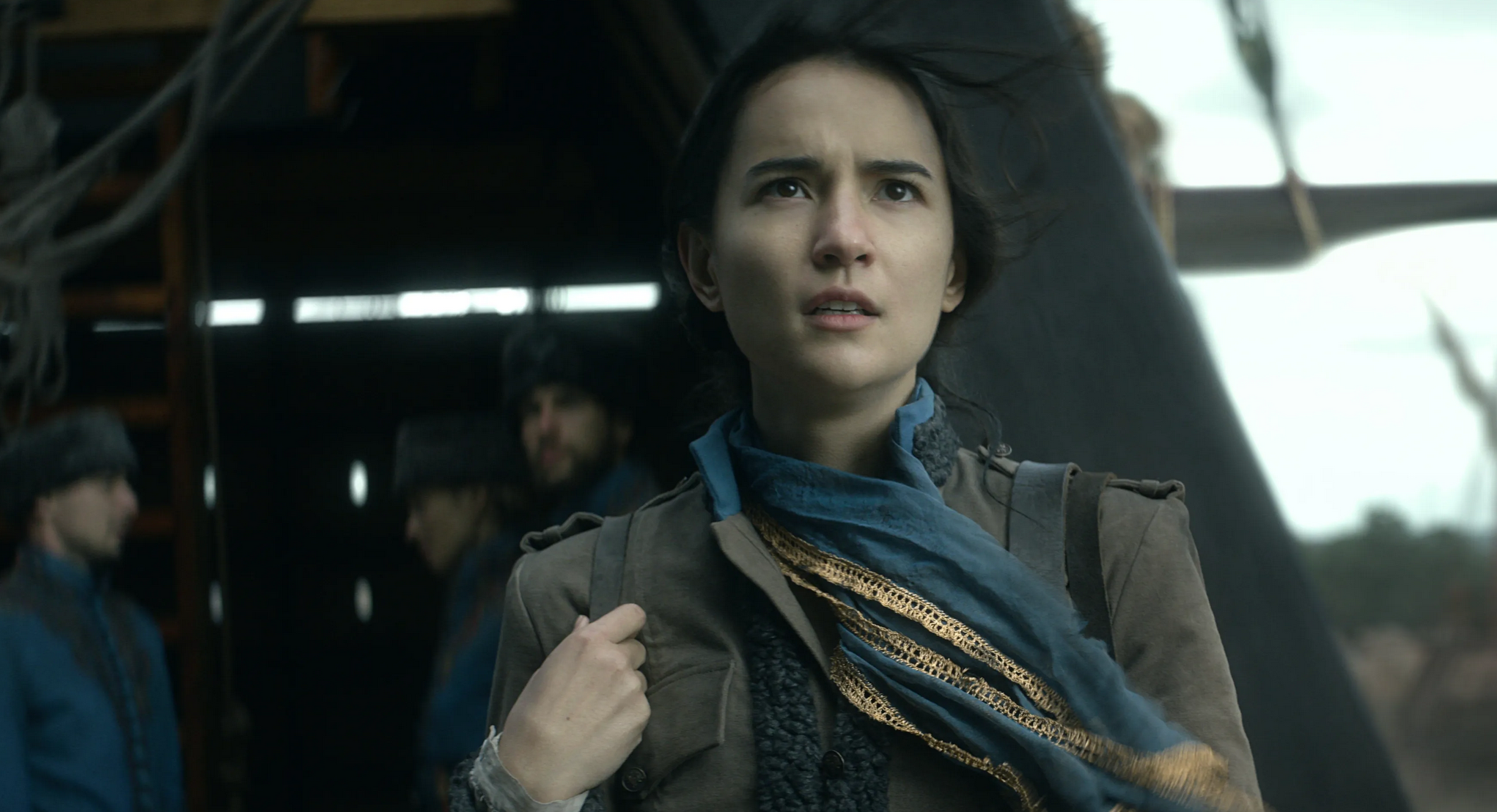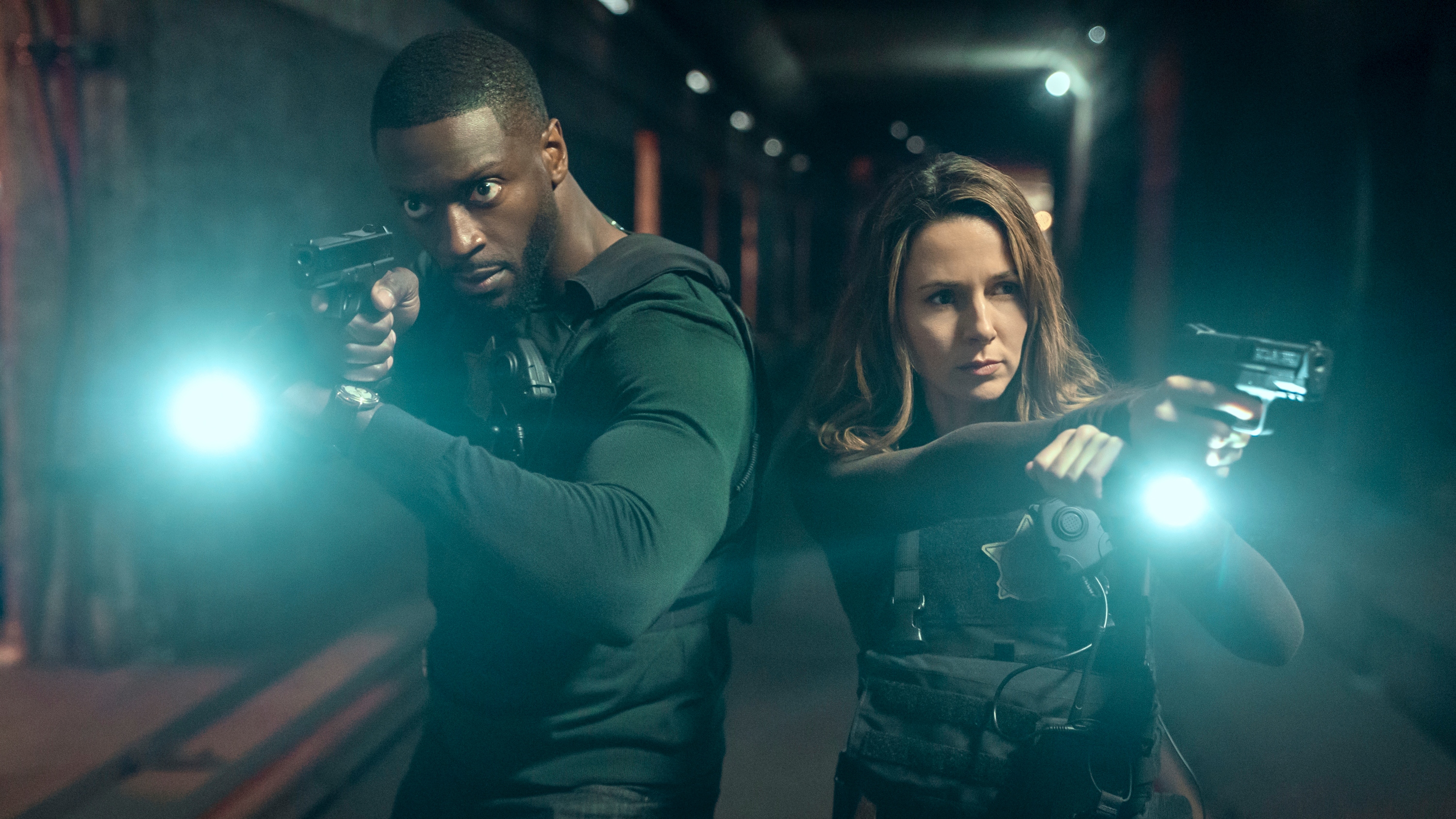What to Watch Verdict
'Shadow and Bone' is trying to show way too much in too little time, leaving its best intentions emotionally stunted and inert.
Pros
- +
⚔️Compelling world building.
- +
⚔️Most of the cast is doing well with the material at hand.
Cons
- -
⚔️Smashing two tonally disparate novels together to give the show a b-plot was a bad idea.
- -
⚔️There's so much exposition that it's difficult to become emotionally connected to the characters.
- -
⚔️Strange, inappropriate editing choices.
Shadow and Bone is the kind of show that I wish I liked more, though I’m sure it’s going to garner its own fandom regardless of anything I have to say here. Adapted from Leigh Bardugo’s Grishaverse series of young adult novels, Shadow and Bone is trying desperately to be Netflix’s answer to Game of Thrones, diving into a politically complex fantasy world and following a variety of characters through their individual machinations as they each supposedly tie into a broader story of the fate of this world. However, that level of epic scope feels inappropriately retrofitted over divergent and tonally disparate storylines and characters that never feel as fleshed out as they should be because they are cannibalizing each other’s screen time.
The main thrust of the plot is a chosen one narrative following Alina Starkov (Jessie Mei Li), a cartographer in the Ravkan Army who is assigned to cross The Fold, a magical area of darkness that divides the country of Ravka in half and is populated by a horde of vicious monsters. As those monsters inevitably complicate her company’s mission and threaten the life of her best friend Mal (Archie Renaux), Alina reveals a hidden power that not even she was aware of: the ability to summon light and to drive away the darkness. The elemental magic-wielding soldiers of Ravka, the Grisha, recognize Alina as the fabled Sun Summoner, an extremely rare one of their kind who could one day entirely dispel the darkness of The Fold and reunite the two halves of the country.
This sweeps Alina up into a whirlwind new life among the Grisha, training in the sequestered Little Palace under the watchful eye of General Kirigan (Ben Barnes), the kingdom’s own wielder of dark magic who seems to be the only one capable of training Alina to master her own unique capabilities. There is a certain rote predictability to the themes and plot beats that this half of the narrative explores, from Alina’s reticence against leaving her old life behind to her eventual embrace of that life as she feels her connection to Mal slipping away, but it’s largely in service to laying the groundwork for understanding Ravka, the Grisha’s role in its society, the political intrigue that threatens to pull the country apart, and the dynamics by which magic operates.
However, so much focus is placed on this worldbuilding that the characters can’t seem to break away from their archetypal roles and gain compelling depth. This is partially borne from a protagonist who is pulled along by the plot more than her own agency, and to Jessie Mei Li’s credit, she’s doing a decent enough job portraying a character who is not afforded much growth outside of reactions to her male co-leads. Kirigan, for reasons too much of a spoiler for this review, is easily the most interesting character of the bunch in large part due to Ben Barnes’ performance, but even his development is backloaded into a season that is weighed down by exposition from the first episode and never finds enough breathing room to let us connect with its characters on an emotional level.
Which brings us to the secondary cast of this series, a thieving crew set to cross The Fold for a big score on the other side. Kaz, a dour criminal prodigy (played by Freddy Carter), Inej, an enslaved spy for whom Kaz is scraping up enough money to purchase freedom (played by Amita Suman), and Jesper, a quick-witted gambling sharpshooter (played by Kit Young) should all be interesting enough characters in their own right, and their interpersonal dynamics show a lot of promise for compelling character drama from three gifted actors. It’s easy to see the impetus for transplanting these characters into the adaptation of Shadow and Bone, since they are actually from an entirely separate story set in Barduga’s Grishaverse, the Six of Crows duology that, so far as my research tells me, does not actually overlap with Alina’s story at all. However, the obligation of setting this trio up and weaving them into this narrative bogs down the series with so much plot that it never finds the room to be emotionally engaging for all the explaining it needs to do.
This is further complicated by how tonally disparate the main storyline and this B-plot can be. Never mind the fact that the manner in which the storylines eventually overlap is transparently forced, but the gulf between the weight of the world on Alina’s shoulders and the more personal stakes of Kaz’s crew leaves the series bouncing all across the tonal spectrum; the thieves are more well-rounded characters that we can’t connect with because the looming fate of the world is always more important than their relatively grounded exploits. I won’t even dive into an extended late-season diversion into the unlikely romance of a foreign warrior (Calahan Skogman, trying his best) and a captured Grisha soldier (Danielle Galligan, making a meal of a role that feels like it should be meatier), which is explicitly setting up more characters from Six of Crows for later seasons but continues to bog down the series in an excess of plot at the expense of story. This leaves the storytelling so unfocused that, save for readers with a prior connection to these characters in their respective novels, I don’t see this being an effective avenue to get more people invested in the franchise.
The lack of focus even extends to the editing bay, as the show is absurdly dedicated to using fast wipes to signify scene transitions, making every change of scenery look like it’s setting up a flashback gag in Malcolm in the Middle. That kind of technical tomfoolery would not normally warrant mention in a review of an entire season of television, but its prevalence was somehow more engaging than the storylines being presented, which should give you an idea of the banality of the story's presentation.
The latest updates, reviews and unmissable series to watch and more!
That all being said, for as much as the show’s storytelling priorities are out of line, I still want to like what’s being presented. I like Ravka’s rough equivalency to 1800s Tsarist Russia and the production design and costuming choices that encourages. I like the show’s sense of humor, primarily delivered from Jesper’s quipping mouth, and I enjoy how the show casually makes same-sex coupling a non-issue of this world. I’m interested in the Ravkan secessionist movement on the other side of The Fold and what it means for Ravka to be a divided nation, not just among the aristocrats but among regular people. Yet for as much as that worldbuilding interests me as a fan of fantasy, there’s just no getting around how Shadow and Bone is trying to show way too much in too little time, to shove its more conventional trappings into the mold of a Game of Thrones epic, leaving its best intentions emotionally stunted and inert.
Shadow and Bone premieres on Netflix on April 23, 2021.
- What's new on Netflix
- The best comedies on Netflix
- How to cancel Netflix
- How much does Netflix cost?
- The best Netflix series
- The best Netflix originals
- The best horror movies on Netflix
- The top 10 movies on Netflix right now
Leigh Monson has been a professional film critic and writer for six years, with bylines at Birth.Movies.Death., SlashFilm and Polygon. Attorney by day, cinephile by night and delicious snack by mid-afternoon, Leigh loves queer cinema and deconstructing genre tropes. If you like insights into recent films and love stupid puns, you can follow them on Twitter.



